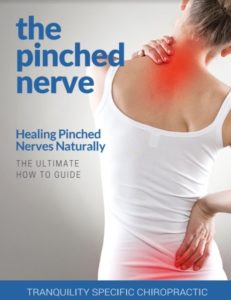Table of Contents
 Millions of people spend hours tapping on their keyboards. Some do it for their jobs, while others type words, numbers, and whatnot to kill time on their favorite social media apps. Interestingly, regardless of your reason for using a digital or physical keyboard, you might have experienced sudden numbness or tingling on your fingers. And chances are, you want to know how to put an end to these uncomfortable symptoms.
Millions of people spend hours tapping on their keyboards. Some do it for their jobs, while others type words, numbers, and whatnot to kill time on their favorite social media apps. Interestingly, regardless of your reason for using a digital or physical keyboard, you might have experienced sudden numbness or tingling on your fingers. And chances are, you want to know how to put an end to these uncomfortable symptoms.
These days, many people get the help of a pinched nerve chiropractor in Pittsburgh because of the tingling or numbing sensation on their fingers. Because of that, we think it’s a good time to talk about this topic in a blog post.
What Causes Tingling Fingers During and After Typing?
Tingling in the hands and fingers mostly happens because of irritated nerves. Studies explain that prolonged and repetitive use of the joints on the wrist and fingers can put undue pressure on the median nerve. Unfortunately, this results in the numbing or pins and needles sensation that comes and goes.
The symptoms also worsen when you type for long hours every day because the pressure causes the protective layer or the myelin sheath to deteriorate. When this happens, you become vulnerable to experiencing worse discomfort and suffering from lasting nerve damage.
Not sure if the tingling feeling you have on your hands and fingers stems from nerve compression? Here are some signs you should watch out for:
- Finger or wrist pain
- Slowed finger movement
- Paresthesia
- Sudden loss of sensation on your hands
Risk Factors that Can Aggravate Median Nerve Compression
Located at the front of the forearm, the median nerve is responsible for the movements of the hands and fingers. Besides physical overexertion of your wrists and fingers, median nerve compression can worsen because of several risk factors, including:
- Incorrect position of your wrist when typing – Awkward hand or wrist placements can put excess pressure on your median nerve.
- Trauma to the wrist – Fracture or trauma to the wrist can irritate your median nerve.
- Misalignment of the upper cervical spine – Cervical subluxation often leads to the onset of various chronic pain disorders such as nerve compression and carpal tunnel syndrome. This happens because the bones interfere with the brain’s signal transmission.
- Osteoarthritis – Osteoarthritis commonly develops in aging people because it is a degenerative joint disease. This condition causes overgrowth of the bones along the spinal column, narrowing the canals and compressing the nerve roots.
- Obesity – Excess weight can affect your spine’s natural curve. The additional fats and other tissues press the discs between your vertebrae, which leads to nerve pinching.
To learn more about the connection between head and neck injuries and pinched nerves, download our complimentary e-book Healing Pinched Nerves Naturally by clicking the image below.
How to Prevent Numbness and Tingling in Your Fingers When Typing
Tingling and numbing of the wrists and fingers affect a significant fraction of the working population. It also develops in kids and teenagers who spend hours playing on their computers or tapping on their phones. Fortunately, there are many ways you can curb the symptoms. Some of the tips you might find helpful include the following:
Maintain proper sitting posture when typing
Paying attention to your wrist, hand, and finger position is vital to prevent tingling and numbness symptoms. In addition, maintain an appropriate sitting posture to relax your upper cervical spine and avoid wrist injuries that lead to nerve pinching.
Place the keyboard in a relaxed position
When typing for long hours, you must have your chair, desk, and keyboard at the right height. Ensure that you won’t have to bend your wrist so high to reach the keyboard. As much as possible, you should place the keyboard at the same level as your elbows. You can also try switching to an ergonomic keyboard, desk, and office chair.
Remove unnecessary accessories
To maintain optimal position when typing and avoid straining your risk, we recommend removing chunky jewelry like rings and bracelets. You can also stretch your fingers before and after your work shift or gaming sessions to release the tension on your hand muscles and joints.
Try upper cervical chiropractic care
Besides making small adjustments to your work or gaming routine, we recommend trying upper cervical chiropractic care. It’s a promising and effective method for relieving nerve root compression. Essentially, a pinched nerve chiropractor in Pittsburgh checks for misalignments along your cervical spine. After finding the exact points that need work, your upper cervical chiropractor can start providing gentle neck bone adjustments.
Find Hope in the Hands of a Pinched Nerve Chiropractor in Pittsburgh
Typing or tapping on the keyboard has become an essential part of many people’s work routines in the last decade. That’s why it’s not surprising why thousands develop median nerve compression. Interestingly, repetitive wrist and finger movement isn’t the only reason you feel a numbing or tingling sensation. Studies show that upper cervical bone subluxation also accounts for nerve compression problems among US adults.
Accidents and injuries that affect the neck often cause the C1 and C2 bones to shift from their original places. When this happens, your entire spinal column has to compromise its natural curvature. This, in effect, increases your risk for nerve compression along the median nerve.
If you have carpal tunnel syndrome or suspect nerve pinching, you can consult with our upper cervical doctor at Tranquility Specific Chiropractic. We can help you confirm the root cause of your pain and provide upper cervical chiropractic adjustments. Our chiropractic doctors aim to help patients eliminate their discomfort from pinched nerves.
Schedule your first consultation appointment with us, or give us a call at (412) 833-1314 so you can begin working with a reliable pinched nerve chiropractor in Pittsburgh.
To schedule a consultation with Dr. Bragg & Dr. Gurcak, call our Pittsburgh office at (412) 833-1314. You can also click the button below.

If you are outside of the local area, you can find an Upper Cervical Doctor near you at www.uppercervicalawareness.com.



